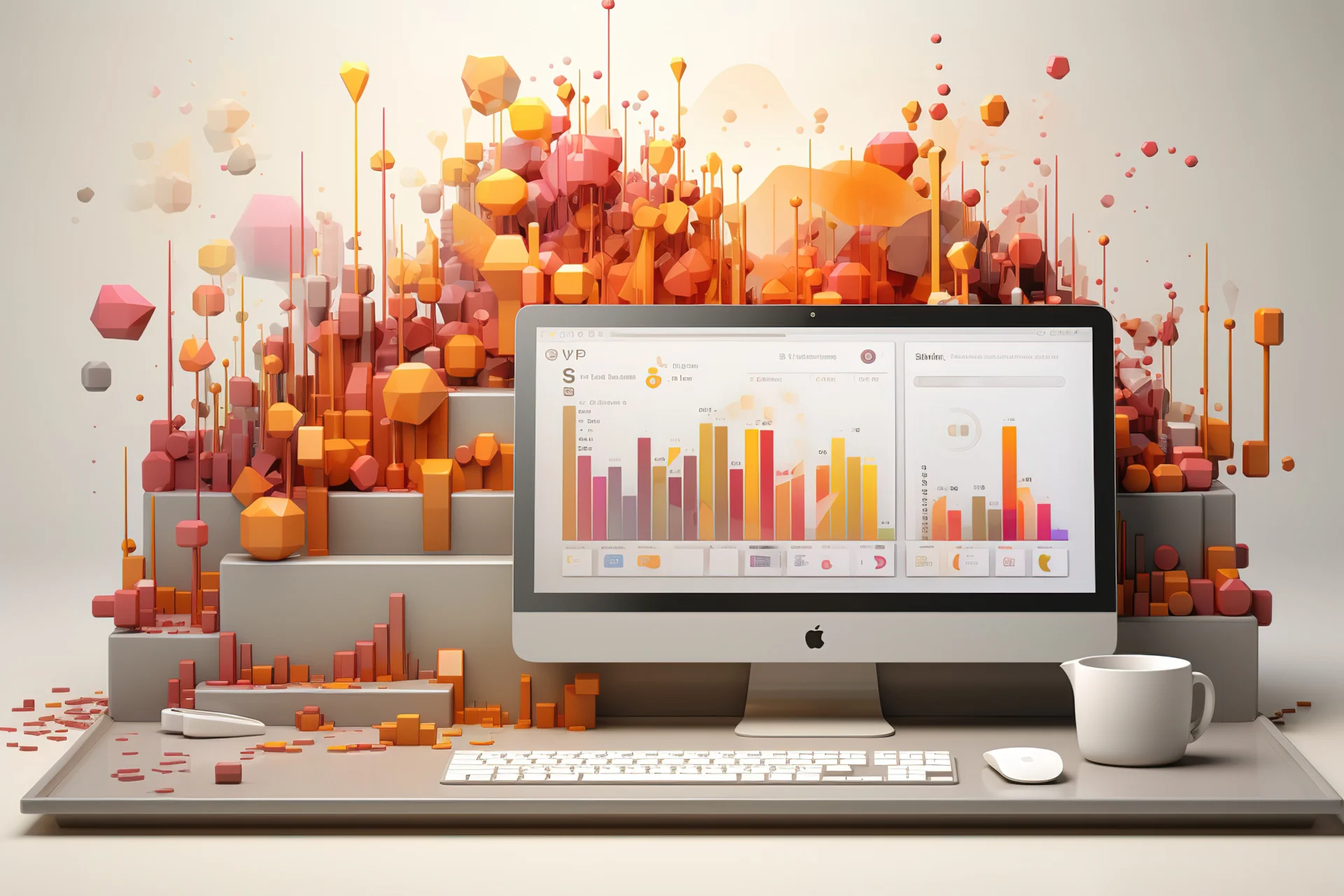Introduction
Blockchain technology, a term often synonymous with cryptocurrencies like Bitcoin, has far-reaching applications beyond digital currencies. At its core, blockchain is a type of distributed ledger technology (DLT), a revolutionary approach to recording and sharing data across multiple data stores, or ledgers. This blog post aims to demystify blockchain technology, explore its mechanics, and delve into its transformative potential as a distributed ledger.
The Mechanics of Blockchain
Understanding Blockchain Technology
Blockchain is a type of DLT where transactions are recorded with an immutable cryptographic signature called a hash. This technology operates on principles of decentralization, transparency, and immutability. The ‘blocks’ in a blockchain store information about transactions, say the date, time, and amount of your most recent purchase from Amazon. The ‘chain’ is a public database where all these blocks, i.e., transactions, are stored.
How Does Blockchain Work?
When a block stores new data, it is added to the blockchain. However, before this can happen, four things must occur: a transaction must occur, the transaction must be verified, the transaction must be stored in a block, and the block must be given a hash. Once all these steps have been completed, the block can be added to the blockchain. When the information is stored in a block, it is not possible to alter or delete the data. This immutability makes blockchain a trustworthy technology, as it provides a clear, auditable trail of all transactions.
The Role of Cryptography in Blockchain
Cryptography plays a crucial role in the security and immutability of blockchain transactions. It converts transaction data into complex codes, which are then stored in blocks. This not only ensures the security of information but also makes it nearly impossible to alter or forge transactions, contributing to the trustworthiness of blockchain technology.
Blockchain as a Distributed Ledger
Decentralization in Blockchain
One of the key features of blockchain technology is decentralization. Unlike traditional databases, where data is stored on a central server, blockchain distributes data across a network of computers, also known as nodes. This decentralization eliminates the need for a central authority or intermediary to manage transactions, thereby increasing system efficiency and reducing the potential for data tampering.
Ensuring Data Integrity and Security
Blockchain technology ensures data integrity through its complex cryptographic algorithms and the process of consensus. Before a block can be added to the chain, network participants (nodes) must agree on its validity, a process known as consensus. This process, combined with the cryptographic hashes, ensures that the data on the blockchain remains unaltered and secure.
Applications of Blockchain Technology
Blockchain technology has a wide range of applications across various sectors. Its ability to offer transparency, security, and efficiency makes it a promising tool for many industries.
Blockchain in Cryptocurrencies
The most well-known application of blockchain is in cryptocurrencies like Bitcoin and Ethereum. These digital currencies use blockchain technology to record transactions and ensure the integrity of the currency system. The decentralized nature of blockchain eliminates the need for a central bank or government to regulate the currency, making it a truly global and inclusive financial system.
Blockchain in Supply Chain Management
Blockchain can greatly enhance transparency and efficiency in supply
chain management. It provides a secure and immutable record of product movement, from manufacturing to delivery, making it easier to track products at every stage of the supply chain. This can help reduce fraud, improve inventory management, and enhance customer trust. Companies like IBM are already leveraging blockchain for their supply chain operations.
Blockchain in Healthcare
In the healthcare sector, blockchain can be used to create a more secure and interoperable system for health records. It can provide a single, unchangeable record of a patient’s medical history, ensuring data integrity and privacy. Blockchain can also facilitate the sharing of health data for research purposes, under appropriate consent mechanisms.
Blockchain in Voting Systems
Blockchain technology can also be used to create secure and transparent voting systems. It can provide an immutable record of votes, preventing fraud and manipulation. Additionally, blockchain voting systems can be accessed remotely, making voting more accessible to everyone.
The Future of Distributed Ledger Technology
Emerging Trends in Blockchain Technology
As blockchain technology continues to evolve, several emerging trends are shaping its future. These include the integration of artificial intelligence (AI) with blockchain, the rise of blockchain-as-a-service (BaaS), and the development of government regulations around blockchain. Furthermore, the increasing adoption of blockchain across various industries is expected to drive significant innovation and transformation.
Challenges and Solutions
Despite its potential, blockchain technology faces several challenges. These include scalability issues, energy consumption concerns, and regulatory uncertainty. However, researchers and developers are actively working on solutions to these challenges, and significant progress is being made. For instance, new consensus algorithms are being developed to improve scalability, and more energy-efficient blockchain designs are being explored.
Conclusion
Blockchain technology, as a form of distributed ledger technology, holds immense potential to transform various industries by providing a secure, decentralized, and transparent system for recording and verifying transactions. Its applications extend beyond cryptocurrencies to sectors like supply chain management, healthcare, and voting systems. Despite the challenges it faces, the future of blockchain technology looks promising, with ongoing research and development likely to drive further innovation and adoption.
References
1. “Deployment of distributed ledger and decentralized technology for transition to smart industries.” dx.doi.org/10.1007/s10669-023-09902-5

Frequently Asked Questions
What is blockchain technology?
Blockchain technology is a type of distributed ledger technology where transactions are recorded with an immutable cryptographic signature called a hash. It operates on principles of decentralization, transparency, and immutability.
How does blockchain work?
When a block stores new data, it is added to the blockchain. Four things must occur: a transaction must occur, the transaction must be verified, the transaction must be stored in a block, and the block must be given a hash. Once all these steps have been completed, the block can be added to the blockchain.
What are some applications of blockchain technology?
Blockchain technology has a wide range of applications across various sectors, including cryptocurrencies, supply chain management, healthcare, and voting systems.
What are the emerging trends in blockchain technology?
Emerging trends in blockchain technology include the integration of artificial intelligence with blockchain, the rise of blockchain-as-a-service (BaaS), and the development of government regulations around blockchain.
What are the challenges faced by blockchain technology?
Blockchain technology faces several challenges, including scalability issues, energy consumption concerns, and regulatory uncertainty. However, ongoing research and development are expected to provide solutions to these challenges.
Further Reading
For more information on blockchain technology and its applications, visit Daillac, a leading application development agency specializing in emerging technologies.

